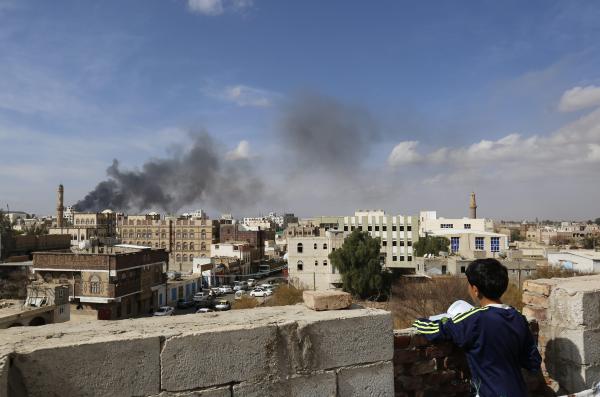Ten months after the outbreak of war in Yemen, there are three powers positioned in the country. The first is the government and the Arab coalition forces, the second is the Houthis and the ousted president Saleh, and the third is Al-Qaeda. What has changed since then is the failure of the Houthis and Saleh to seize power in the country and the government’s return to Yemen after it had lost the last inch of the country.
Ten months may not seem long in the age of wars but it is enough to conclude that Yemen will not be left to the Iranians to impose its Houthi proxy and the personal wishes of Saleh to take control of the authority. In practice, the war changed the map of power on the ground enough to understand the future and may force the exhausted rebel forces to raise the white flag soon.
The time may be appropriate to test the desire of every Yemeni power for a peaceful solution outside Swiss hotels which have become occupied by delegations sent regarding other conflicts. What prompted me to think about this is what my friend, the former Yemeni ambassador Mustafa Al-Nu’man, wrote in the Okaz newspaper about what he called the “third Yemeni party”.
Ambassador Al-Numan, whom I met at the last Davos Forum in Switzerland, believes that there are a number of respected Yemeni figures who are not involved in the conflict and can play a positive role in solving the crisis by mediating in order to end the conflict. His diagnosis of the war in Yemen is that the fighting powers, in general, may not have enough political skill to communicate and reach an understanding about a solution that will provide safety to all and design an acceptable political plan.
The “third Yemeni party” consists of Yemeni leaders who were detached from the crisis and who can act as a bridge between the different parties. Potential candidates include Major General and former chief of staff Hussein Al-Masory, the former deputy prime minister Ahmed Sofan, the former minister Mohammad Al-Tayeb and of course ambassador Al-Numan.
Will a team like this be successful in creating dialogue and carrying messages that produce political solutions before the war completes its first year? There is no harm in active and diplomatic parallel lines and independent and military negotiations. What is important is that a solution is reached to end the state of rebellion and implement the Security Council Resolution that strives to achieve stability and unity in Yemen and establish an effective system. It is not necessary to wait for the raising of the white flag whilst there is a desire to achieve these aims. Ultimately, the aim of war is to achieve peace by restoring legitimacy.
There is no doubt that the war in Yemen and the pain that it has caused prevented the rebellious bilateral Houthi – Saleh alliance from taking control of power. If they had succeeded, Yemen would have turned into an arena of revenge and sectarian and tribal conflicts. Perhaps if the Gulf countries had not intervened in Yemen, it would have ended up exactly like Somalia which was left to civil wars and famine and where a civil war has been going on for about 20 years.
Yes, there is a Saudi-Iranian war in Yemen but the justifications for it are different. Iran provides for the Houthis and it is in its interests to create chaos which will make Yemen a platform for destruction aimed at Yemeni groups and Saudi Arabia.
As for Saudi Arabia and the other GCC countries, their only interest is achieving stability for their Yemeni neighbour because this guarantees stability for them. This is a fact that the ousted president Saleh could not comprehend a year ago. He thought that toppling the government would lead to Gulf countries closing their embassies in Sana’a, packing their bags and leaving for their home countries. This is why Saleh risked all of his looted money and material to lead a rebellion against the legitimate government in alliance with Iranian militias. He was surprised that the Saudi government took action to support the legitimate government and launched a large war against him. As for the Houthis, as a militia affiliated to Iran, they were given a difficult task and if it was not for Saleh’s forces, they would not have reached further than the city of Omran.
The war has changed concepts as well as the map and the rebels have realised that the coalition possesses the determination and the ammunition to continue fighting at a time when Saleh’s situation has taken a turn for the worse. This will force him and his leaders to occupy cellars after living in his castle.
